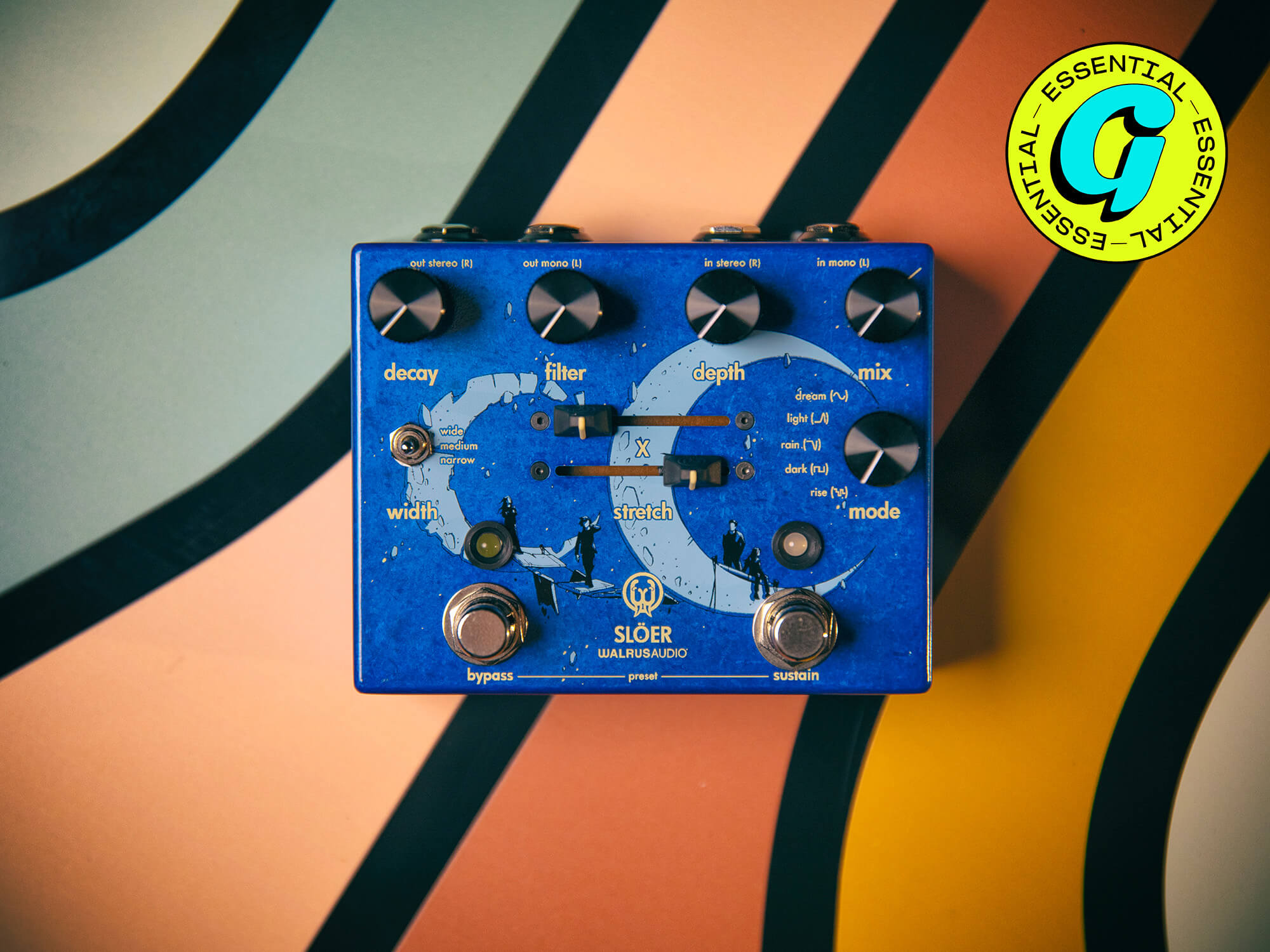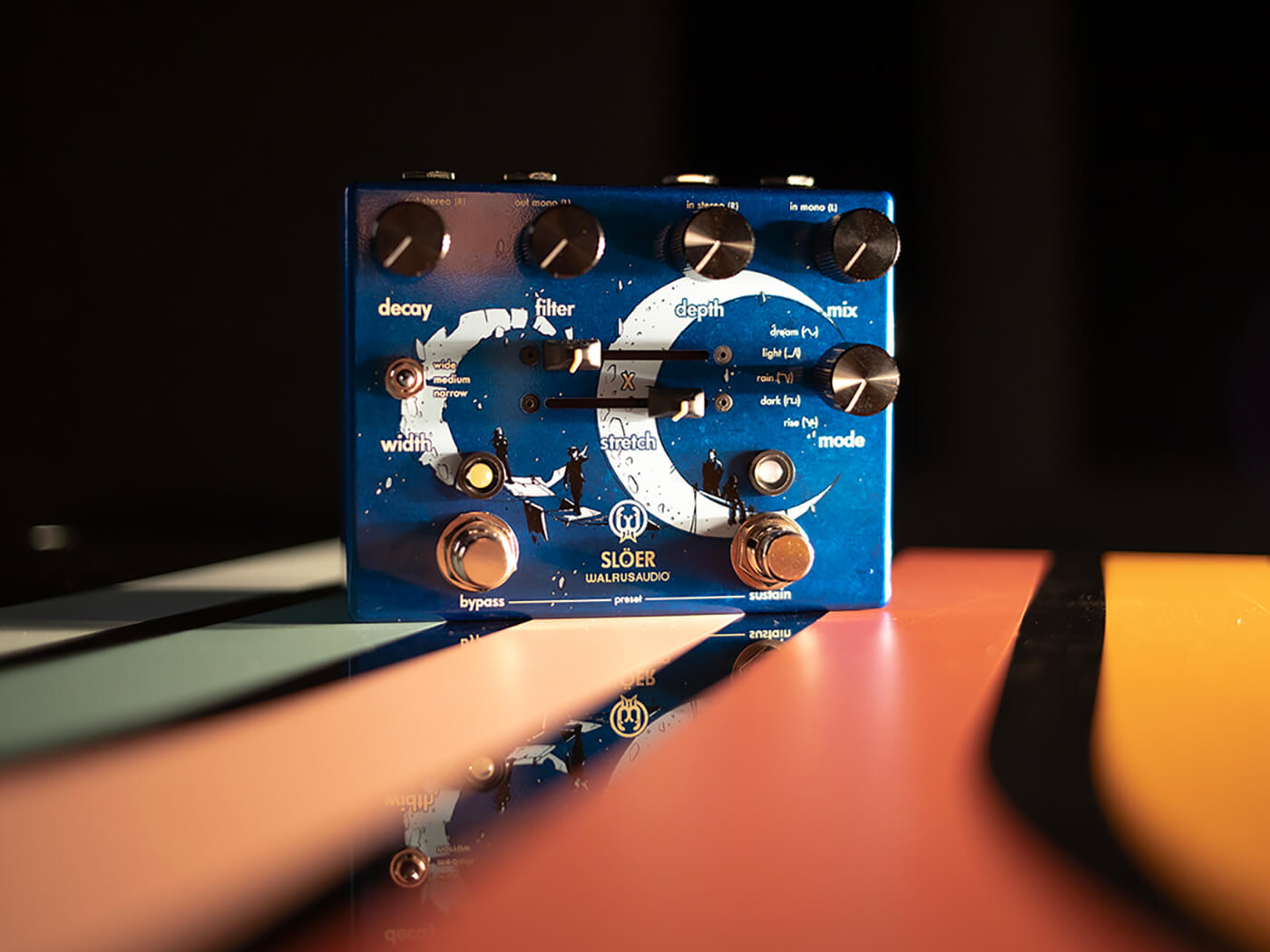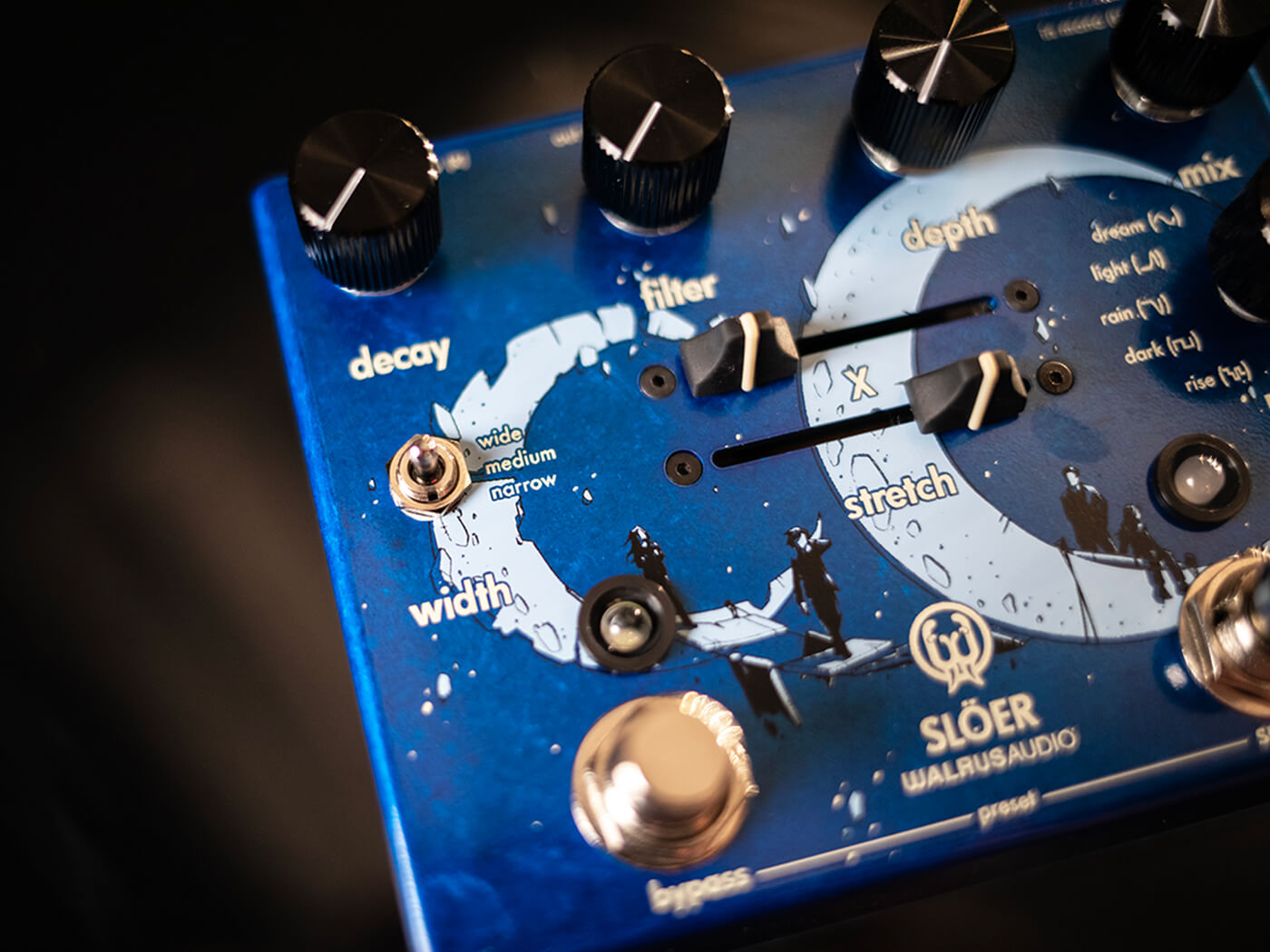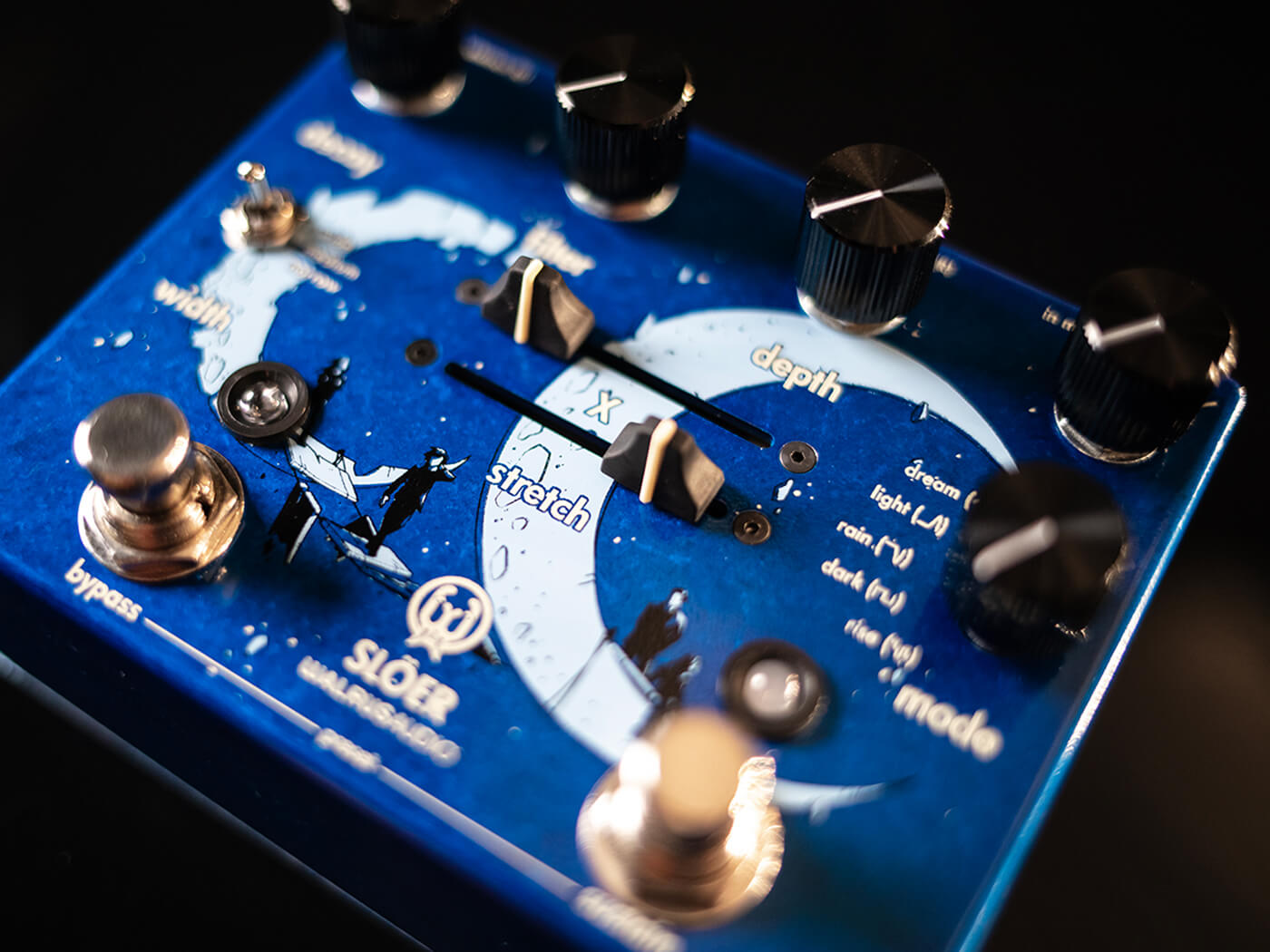Walrus Audio Slöer review – the Infinity War of multi-textural reverbs
Walrus’s third go-around with the Slö concept sees it spreading things out and adding a few more sounds under the hood – is this the soundscaper’s dream?

Walrus Audio Slöer
Review Overview
Our rating
10
Our verdict
$349.99/£339, walrusaudio.com
If you’re an ambient-adjacent musician looking to emulate the lush soundscapes of Radiohead’s Ed O’Brien or the dreamy experimental wall of sound of This Will Destroy You, Walrus Audio’s pedals often get mentioned. The brand has made waves with a variety of ethereal, esoteric effects that form what I’ve decided to dub the Walrus Audio Multi-textural Ambient Delay and Reverb Saga – and Marvel has nothing on Walrus when it comes to a constant stream of crowd-pleasing hits. Just in the last year or so we’ve had the Lore, the Fable and the joystick-toting Melee, and before that you can add the Fathom, the ARP-87, the Descent and of course the Slötva and the original Slö.
The Slö was of course the original ‘Multi-texture Reverb’ and made waves when it was launched back in 2019. Since then we’ve had the Slötva, which added saveable presets, and now the biggest Slö of the lot; the brand new double-width Slöer.

So what’s new? Well for starters you get stereo in and out to finally allow you to hear what those original Slö algorithms sound like through a stereo rig, but that’s not all. The controls and knobs remain identical to Slötva, however, there are a few differences,
First is the addition of the Width switch, which as the name implies also allows you to control the stereo field in the right and left channels. The Stretch slider is another new addition and its purposes are a bit more overt; it lowers the sample rate and lengthens the reverb time, and rather than a switch to go between the different sounds you now have a five-way rotary knob.
It’s not just old sounds either; there are two new algorithms, named Light and Rain. Light can perhaps unsurprisingly be described as the opposite of the original Dark algorithm by way of being a much brighter reverb with an octave up shimmer rather than Dark’s octave down. Rain is a bit more experimental – Walrus describes it as “tappy and trippy”, and it uses the reverb delay taps to audibly create an echo-like effect within your reverb. You can control the diffusion of these taps using the X control.

In use
To put the Slöer through its paces, I run it direct into a stereo rig consisting of my trusty Matchless Nighthawk 15 and a Fender ’65 Deluxe Reverb Reissue. With my American Vintage II Jazzmaster in hand I start with the Dream algorithm, and honestly finally being able to hear these familiar and incredibly musical Slö sounds in proper stereo is one of the best things about the Slöer. The luscious space-filling sound that emanates from my amps is a stark reminder of what the Slö has been lacking.
Turning my attention to the two new algorithms, I find Light to be particularly inspiring – with the mix and decay knobs set a little past 2 o’clock, I’m washed away in a wall of ambience. With the strum of a few open chords I’m channelling my inner Sigur Rös, while the upper octave shimmer is never ear-piercing and sits nicely underneath the reverb mix to provide a refreshingly different approach to shim-verb. It’s definitely the ying to the Dark setting’s yang.
Rain definitely encourages a sense of auditory exploration – the faux-delay never seems overtly intrusive and in stereo I find the X slider to be even more responsive and overall the best representation of the Slöer’s intuitiveness. Pro tip: an EBow and careful use of the sustain switch allows you to hold out long ambient chords and play over it, in a manner akin to James Iha of the Smashing Pumpkins – it’s fun!

As the third iteration based on the same pedal, the Slöer could have been a bit underwhelming, but in practice more than lives up to the hype and legacy of its predecessors and expands on them. It also serves to once again demonstrate why so many guitarists have fallen in love with Walrus Audio’s pedals – they’re always listening to feedback from their audience and seem uniquely agile and open to enhancing and refining their ideas.
This is definitely not the reverb for anyone who occasionally dabbles with a splash of spring reverb, nor is it intended to be. It is nevertheless a reverb pedal that is both instantly gratifying and beautiful for those willing to immerse themselves in an ambient auditory exploration.
Like this? Try these
- Strymon Cloudburst £279
- Chase Bliss Dark World $349 (around £282)
- Empress Reverb £425




